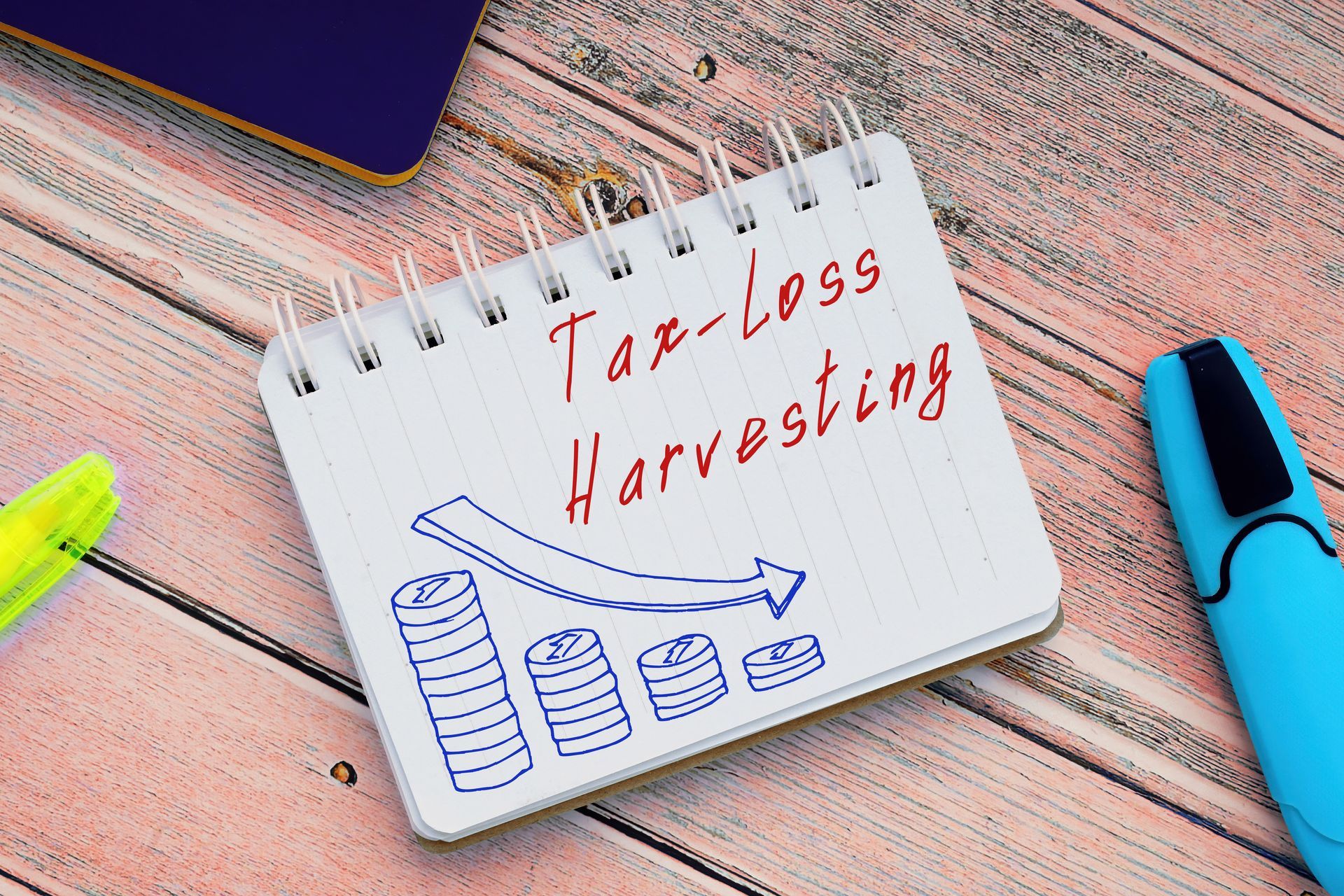What Is Tax-Loss Harvesting?

Tax-loss harvesting is when people sell investments at a loss in order to offset regular or capital gains income. Selling an investment at a loss means you sell it for less than what you paid for it. Why would you go out of your way to sell assets at a loss? Wouldn’t it be better to just make a profit and pay taxes on that profit? The answer is complicated.
How Tax-Loss Harvesting Works
- You bought $10,000 of Company A. It dropped in price and is now worth $7,000. You have an unrealized loss of $3,000.
- You bought $8,000 of Company B. Its value increased to $12,000. You have an unrealized gain of $4,000.
- You sell both stocks, realizing the gain of $4,000 and the loss of $3,000.
In that scenario, your taxable gain would only be $1,000. If you had held on to Company A and sold Company B, you would have a taxable gain of $4,000.
Wouldn’t It Be Better to Simply Avoid Losses?
There are a few reasons why investors may pursue a tax-loss harvesting strategy. Since short-term capital gains are taxed at a higher rate than long-term capital gains, you could potentially use tax-loss harvesting to offset the gains that would be taxed at a higher rate. This gives an investor more flexibility to make advantageous sales when they’re available without fear of the tax implications for doing so.
There’s also an opportunity cost inherent with leaving money in a poorly performing investment. In the above example, you don’t necessarily want to take a loss of $3,000, especially if you suspect that if you wait a few years, Company A may eventually recover and allow you to break even or even make a modest profit; let’s assume $500.
However, you might prefer to own a new stock, Company C, if it has a better outlook. You may suspect that if you buy Company C, you’d likely make a profit of $4,000 in the same time period as you’d make $500 on Company A.
There’s an opportunity cost of $3,500 by keeping Company A instead of buying Company C.
In that scenario, you can both realize and harvest the loss from Company A and put the money into Company C.
Since you can carry over realized losses, you can potentially offset the tax you’d eventually owe on the realized gain you make from selling C with the realized loss from Company A.
There’s also the potential that a loss can alter the tax bracket of the investor. Realized capital gains are included in your total income, meaning it could potentially push you into a higher bracket. Tax-loss harvesting could keep you in a lower bracket, meaning more of your regular salary would be taxed at the lower rate rather than having some of your income taxed at the higher marginal rate.
The other fundamental benefit of deferring tax liability is the investor has to pull out less of their money from current investments in order to cover their tax burden. If their income situation changes, they might be charged at a lower tax rate in the future. In other words, they can defer having to pay taxes on realized gains until they are in a lower tax bracket.
There could also be scenarios where the loss is unavoidable. For example, if you invested money into a business that went on to fail, you could potentially carry forward the loss to offset future income or capital gains. There are many limitations on what types of investments qualify, like whether or not it’s an ordinary loss versus a capital loss. For example, a single filer can deduct $50,000 ($100,000 for married joint filers) if a small business stock investment becomes worthless or is sold at a loss if the Section 1244 rule applies.
In other words, if a person makes an investment that will inevitably lose money, they can at least use the loss to lessen their future taxable income and tax burden.
Does Tax-Loss Harvesting Make Sense for Me? How Do I Use It?
Tax-loss harvesting is complex, and it’s a strategy that’s typically only useful for certain people in specific circumstances. If you’re a Phoenix taxpayer looking for ways to reduce your tax liability, the team at H&H Accounting Services is here to help. Call us at (480) 561-5805 to speak with an expert tax preparer about strategies that might work best for your situation.



